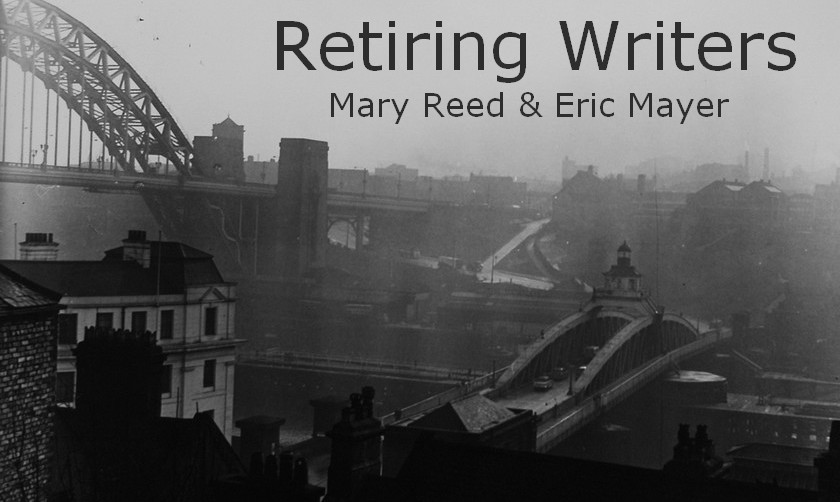Who are your favorite mystery authors? What are your favorite genres? For me, the first answer is easy. There are authors whose work I've enjoyed for decades. The second question is much harder because my favorite authors' books are oddly divergent. For instance, both Agatha Christie and John D. MacDonald are among my favorites. But how can I like both the elderly spinster Miss Marple and rugged beach bum Travis McGee?
I've always been attracted to the intellectual nature of classic mysteries even though I rarely, if ever, solve the puzzles presented. In Death Comes as the End, Christie kills off her ancient Egyptian suspects one by one until there are only two left and even then I guessed wrong! I suppose I like being surprised and seeing how the author fit everything together and fooled me. Years ago Mary and I went to a fair where a strolling magician stood six inches from us and performed sleight of hand making coins appear and vanish. Even though I knew it had something to do with diverting our attention and sheer dexterity I couldn't spot the trick and Christie performs similar magic of a literary sort.
Then too as a kid I loved Golden Age science fiction from the thirties, forties, and early fifties where intellectual content (even if mostly pseudo science) far outweighed characterization, psychology, or any literary pretense. What would happen if you could travel back in time and meet yourself? What would life be like on a planet where gravity would crush humans? Later I discovered mystery novels where whodunnit was figured out logically in convoluted detail just as puzzles involving time and gravity were in science fiction.
Do I even have to say I love the locked room mysteries of John Dickson Carr and Ed Hoch? These are even more purely "scientific" than Agatha Christie.
However, I've also read all of John D. MacDonald's Travis McGee books more than once. The houseboat he lives on in Florida is wildly different from the English estates and manor houses which provide the settings for many Christie novels. And neither Miss Marple nor Poirot are likely to engage in fist fights with the bad guys. And talk about really "bad" bad guys. MacDonald depicted some of the most realistic nasty villains -- as opposed to cartoonish villains -- I've ever read about.
However, a Florida houseboat is to me as exotic a setting as an English estate. Christie's villains can be pretty diabolical in their own ways. And although Travis will use his fists when necessary the books mostly revolve around some elaborate con game he and his economist friend Meyer set up to retrieve whatever the villains have stolen from their victims. These schemes can be every bit as clever and surprising as the solution to a Christie murder mystery.
Certainly my liking for noir novels of the sort Gold Medal published in the fifties matches my liking for the Travis McGee stories, which can be quite black and bleak. But, when you think about it, Christie wrote some very noir stuff featuring greedy, evil sociopaths who kill innocents. Also, her mysteries can end as unhappily as any noir, I don't want to give anything away but if you are familiar with Christie you know what I mean. It irks me when I hear her work described as cozy because, settings aside, most of her books are not anything like those marketed as cozies today.
I haven't mentioned another of my all-time favorites, Georges Simenon's Maigret. The gloomy underbelly of Paris where Maigret usually operates is about as noir as it gets and though he may not be as physical as Travis he is not adverse to throwing his considerable weight around. But unlike the classic whodunnit with its elaborate maze of clues, Maigret focuses almost exclusively on the psychology of the murderers and victims. Or so we are told. To me, this isn't all that much different than a locked room mystery because what room is more tightly locked than the human mind? The tangle of intellect and emotion that might motivate a person to commit a crime is every bit as complicated and puzzling as a method for knifing someone in the back through a locked door. Once Maigret solves the characters he encounters he has solved the murder.
I'm sure I've left out some favorites and similarities between them all. But thinking about it, maybe different genres of mystery aren't as dissimilar as they might seem.

No comments:
Post a Comment